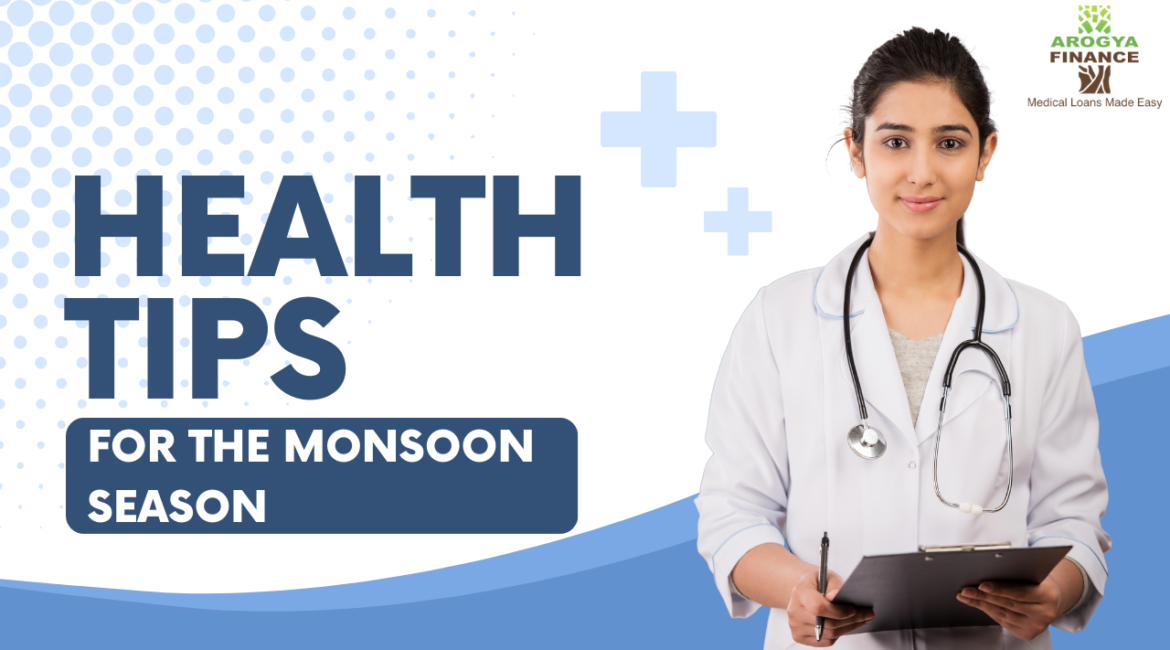Disclaimer: This is not medical advice, if you have any concerns/doubts or health issues, please consult a doctor or visit your nearest hospital. Images used are for graphical representation only.
Monsoon season in India is a much-awaited and joyous time, as it brings relief from the scorching heat of summer and fills the land with lush greenery. However, along with the rejuvenating rains, monsoon also brings its fair share of health challenges due to increased humidity and waterborne infections. Preventive measures are crucial during this season to stay safe and maintain good health. In this blog, we will explore essential tips to help you stay safe and avoid diseases during the monsoon season in India.
1. Stay Hydrated
While it may seem counterintuitive to focus on hydration during the monsoon season, it’s essential to drink an adequate amount of water. The increased humidity can lead to excessive sweating, which, if not compensated with enough fluids, can lead to dehydration. Drink purified or boiled water to avoid waterborne diseases. Herbal teas, coconut water, and soups can also contribute to maintaining proper hydration levels.
2. Follow a Healthy Diet
Eating a balanced and nutritious diet is crucial for a strong immune system. Incorporate seasonal fruits and vegetables into your meals to boost your body’s ability to fight off infections. Foods rich in vitamin C, such as oranges, guavas, and lemons, can be especially beneficial during the monsoon as they help improve immunity.
3. Avoid Street Food and Uncooked Foods
During the monsoon, it’s best to avoid street food and raw or uncooked foods. The increased moisture in the air can lead to rapid bacterial growth, making these foods more susceptible to contamination. Opt for freshly cooked meals and thoroughly wash fruits and vegetables before consumption.
4. Maintain Personal Hygiene
Proper personal hygiene practices play a significant role in preventing diseases during the monsoon season. Ensure you wash your hands frequently with soap and water, especially before eating and after using the restroom. Keep your living spaces clean and dry to prevent the growth of molds and bacteria.
5. Protect Yourself from Mosquitoes
Monsoon season often leads to a surge in mosquito population, increasing the risk of mosquito-borne diseases like dengue, malaria, and chikungunya. Use mosquito repellents, wear long-sleeved clothing, and use mosquito nets while sleeping to minimize exposure to mosquito bites.
6. Avoid Walking in Stagnant Water
Stagnant water is a breeding ground for mosquitoes and other harmful pathogens. Avoid walking through puddles or stagnant water to minimize the risk of infections, particularly waterborne diseases like leptospirosis.
7. Be Cautious with Water Activities
While the idea of splashing around in puddles may seem fun, it’s important to be cautious during the monsoon season. Water bodies can be contaminated with sewage and harmful bacteria, leading to various infections. Avoid swimming in natural water bodies, and if you’re engaging in water-based recreational activities, ensure it’s done in controlled and sanitized environments.
8. Stay Informed about Weather Conditions
Keep yourself updated about the weather conditions in your area. Monsoons can bring heavy rainfall, leading to flooding and other related hazards. Stay away from areas prone to flooding and landslides. If you live in an area prone to such disasters, have an emergency plan in place and be prepared to evacuate if necessary.
9. Boost Your Immunity
A strong immune system is your best defense against infections during the monsoon season. Besides eating a healthy diet, make sure to get enough rest, exercise regularly, and manage stress effectively. Adequate sleep and physical activity contribute to a healthy immune system.
10. Get Vaccinated
Vaccinations can protect you from specific monsoon-related illnesses like influenza and prevent the spread of diseases. Consult your healthcare provider to ensure you are up-to-date with the recommended vaccinations.
11. Be Cautious with Public Transport
During the monsoon, public transport can be more crowded and prone to delays. Be cautious while using public transport and avoid touching surfaces unnecessarily. Carry a hand sanitizer with you and use it frequently when soap and water are not available.
12. Be Mindful of Air Quality
While monsoons bring relief from summer heat, they can also worsen air quality due to increased humidity and stagnant water. People with respiratory conditions like asthma should be particularly cautious and may consider using air purifiers indoors.
13. Be Prepared for Common Illnesses
Despite taking preventive measures, it’s possible to fall sick during the monsoon season. Have a basic first-aid kit at home with essentials like antiseptics, band-aids, fever-reducing medications, and oral rehydration salts.
14. Avoid Crowded Places
During the monsoon, infectious diseases can spread rapidly in crowded places. Try to avoid gatherings in enclosed spaces to minimize the risk of exposure to viruses and bacteria.
Monsoon season in India is a beautiful time to enjoy nature’s splendor, but it’s also essential to prioritize your health and safety. By following these tips and being proactive in preventing diseases, you can make the most of this season while staying safe and healthy. Remember to maintain proper hygiene, stay hydrated, and take necessary precautions to protect yourself and your loved ones from monsoon-related illnesses.

